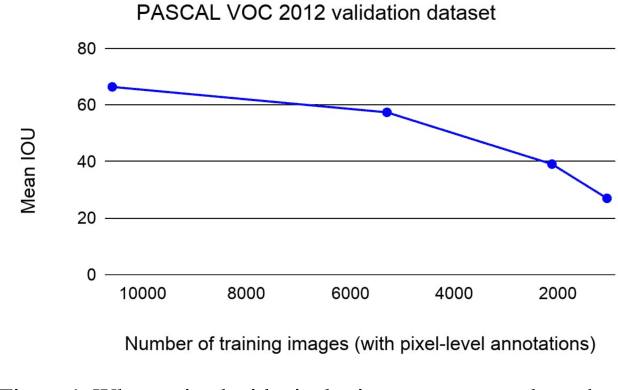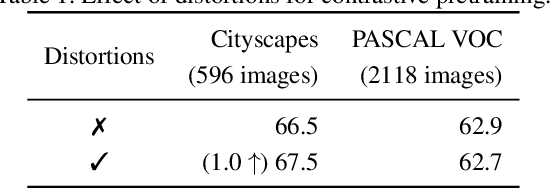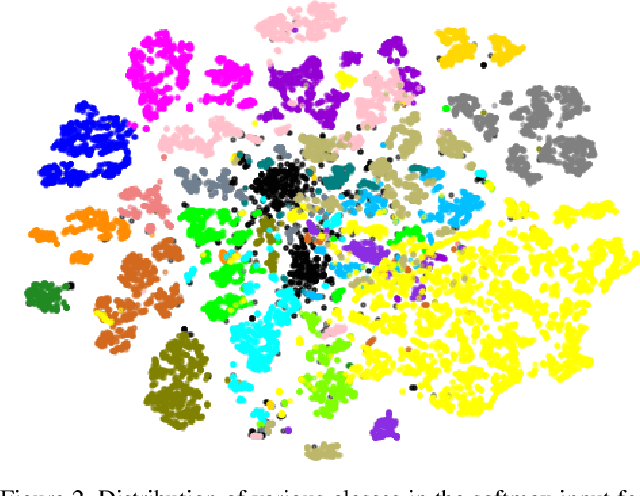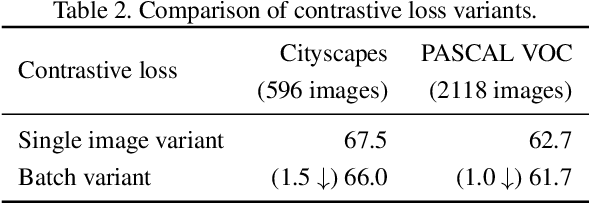Contrastive Learning for Label-Efficient Semantic Segmentation
Paper and Code
Dec 23, 2020



Collecting labeled data for the task of semantic segmentation is expensive and time-consuming, as it requires dense pixel-level annotations. While recent Convolutional Neural Network (CNN) based semantic segmentation approaches have achieved impressive results by using large amounts of labeled training data, their performance drops significantly as the amount of labeled data decreases. This happens because deep CNNs trained with the de facto cross-entropy loss can easily overfit to small amounts of labeled data. To address this issue, we propose a simple and effective contrastive learning-based training strategy in which we first pretrain the network using a pixel-wise class label-based contrastive loss, and then fine-tune it using the cross-entropy loss. This approach increases intra-class compactness and inter-class separability thereby resulting in a better pixel classifier. We demonstrate the effectiveness of the proposed training strategy in both fully-supervised and semi-supervised settings using the Cityscapes and PASCAL VOC 2012 segmentation datasets. Our results show that pretraining with label-based contrastive loss results in large performance gains (more than 20% absolute improvement in some settings) when the amount of labeled data is limited.
 Add to Chrome
Add to Chrome Add to Firefox
Add to Firefox Add to Edge
Add to Edge